Alder Lake's small cores are more exciting for PC gaming than you might think
The smart scheduler silicon in Intel's next-gen CPUs will dedicate the big cores to gaming and the little cores to streaming.
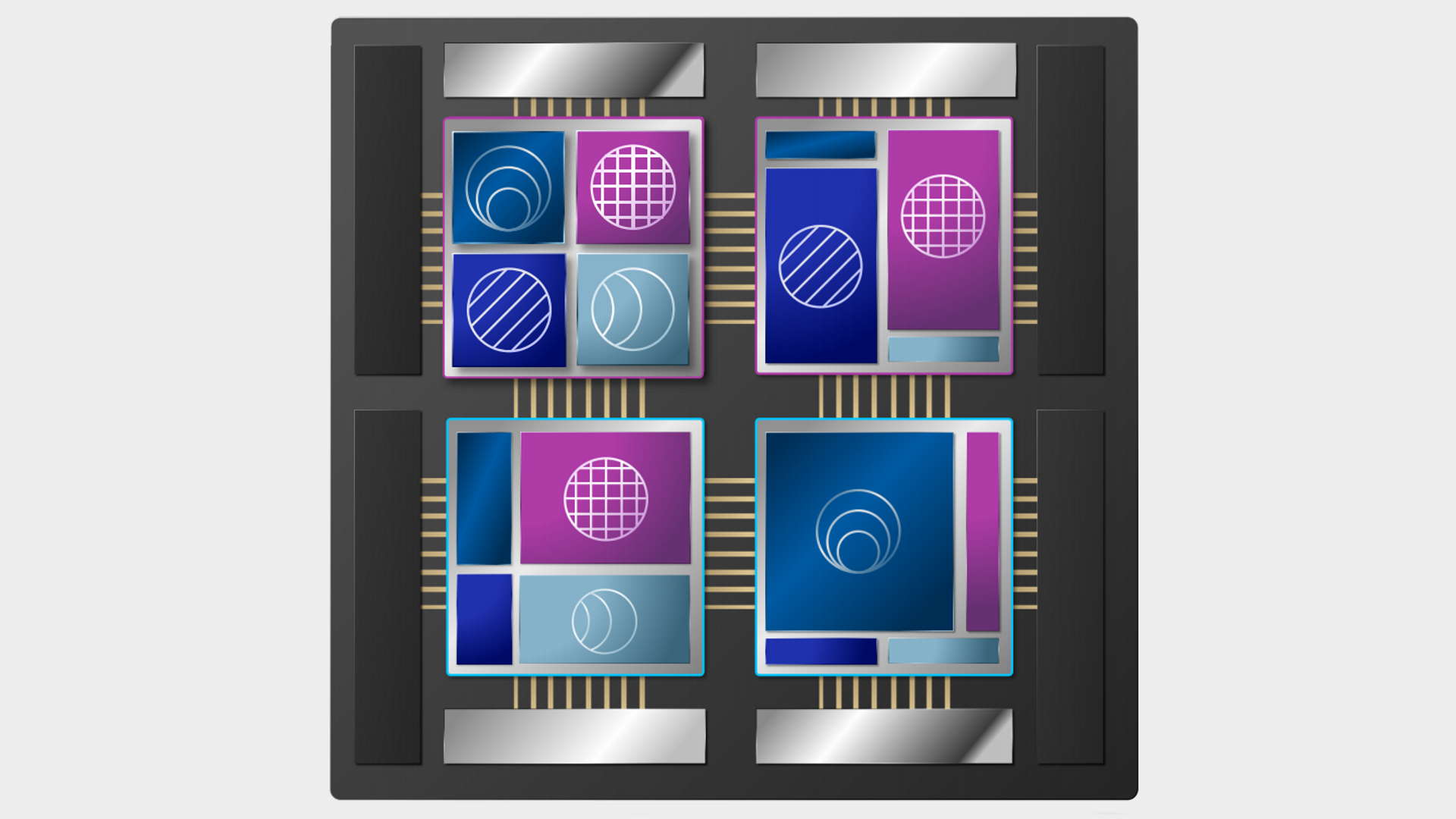
Intel has blown the lid off its upcoming Alder Lake processors at its latest Architecture Day, exposing the hybrid chip's varied core makeup and its somewhat magic scheduler. It's all very exciting for CPUs on the whole, but especially how Intel expects gamers and streamers to benefit from Alder Lake's new, high-efficiency cores.
Alder Lake will feature a blend of 'Performance' cores and 'Efficient' cores, and each serves a slightly different purpose in general PC use.
The former, the Performance core, is what we're used to considering a CPU core on desktop; it's all about high clock speeds and single-threaded performance. These are built on the Golden Cove architecture, which is one step on from the Willow Cove cores currently found in 11th Gen Tiger Lake mobile processors, and two steps on from the Cypress Cove design in Rocket Lake desktop chips.
The latter, the Efficient Core, is all about power efficiency and multithreaded workloads. Up until now, these were known as Gracemont cores, and they're sort of a carry-over from Intel's Atom lineup. Don't be fooled, though—the Efficient core has a higher IPC than Skylake, for a fraction of the power and space demands.
In fact, the Efficient core, through both advances in design and the use of Intel's more advanced Intel 7 process node, offers 40% greater performance than Skylake for the same power. Or the same performance for 40% less power. Pretty impressive stats from what we might otherwise brush aside as a sub-par Atom core.
The top Alder Lake desktop chip will come with eight Performance cores and eight Efficient cores. That totals 24 threads in total, as each Performance core also offers Hyper-Threading.
Us gamers probably feel the allure of the high-speed Performance cores all the same, and so we should if Intel's promise of a 19% general performance increase is true. Yet, following on from Intel's Architecture Day, I'm starting to see the light in the small, Efficient cores.
The biggest gaming news, reviews and hardware deals
Keep up to date with the most important stories and the best deals, as picked by the PC Gamer team.
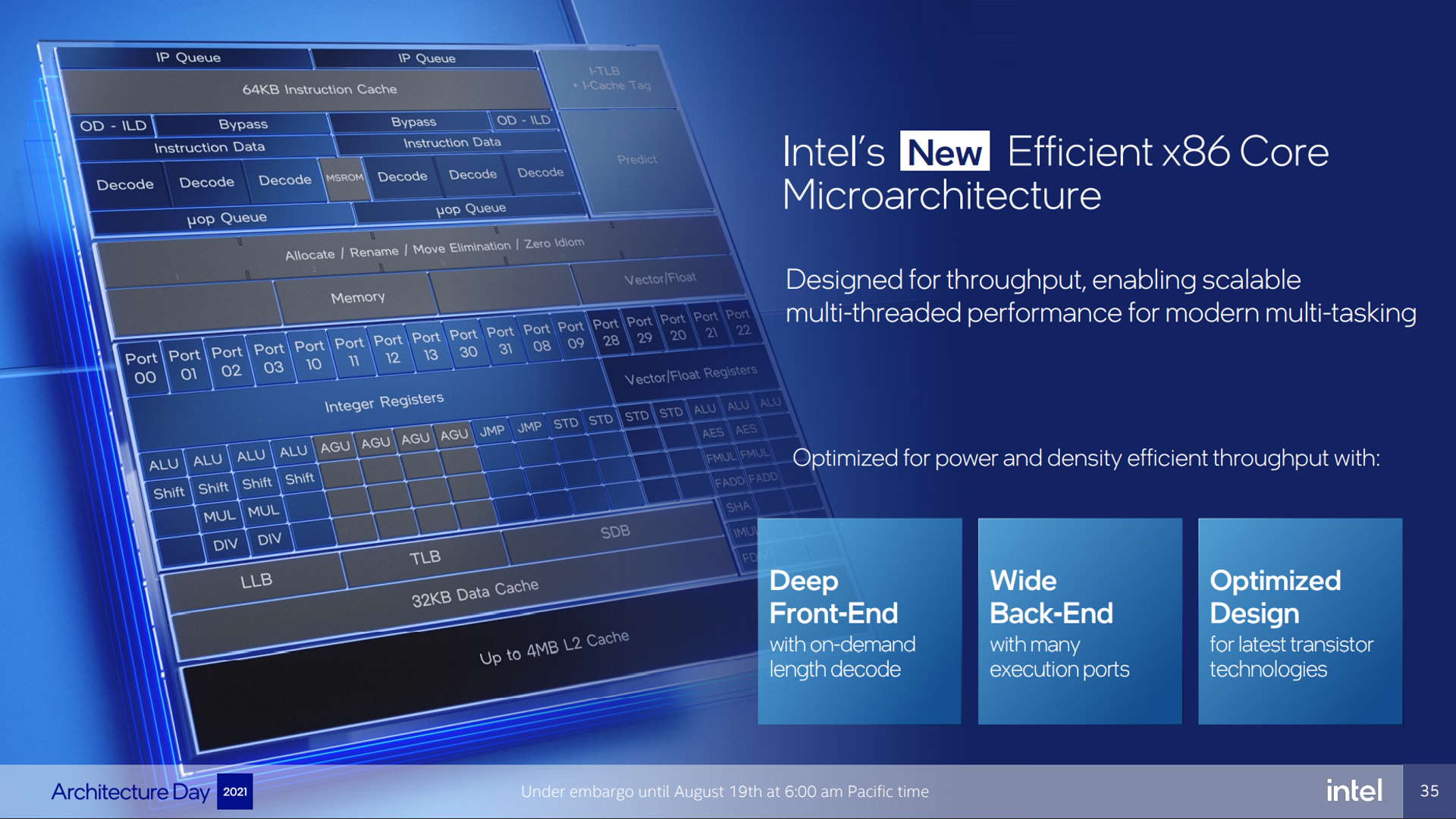
The best example that we have in the lab is gaming in parallel to whatever other workloads that you're running. Can be streaming, can be web browsing.
Ran Berenson, Intel GM
It's these smaller cores that could actually shake things up for CPU gaming performance.
The reason being, Intel says, is the small cores could become extremely useful in offloading lower priority tasks from the powerful Performance cores while you're gaming. That includes such things as streaming and recording your gaming sessions, which Intel says is exactly what this hybrid performance architecture does exceptionally well.
That ultimately comes down to the Thread Director, a hardware-based scheduler that aids the OS (in this case Windows 11) in divvying up tasks between cores.
The Thread Director is located on the Alder Lake chip itself, and it works by exposing more information to the OS for scheduling tasks than it would otherwise have access to. Augmented by the Thread Director, the OS can cleverly shift tasks around as it sees fit, moving high-priority tasks to the top of the Performance core queue while putting low-priority tasks on the Efficient cores.
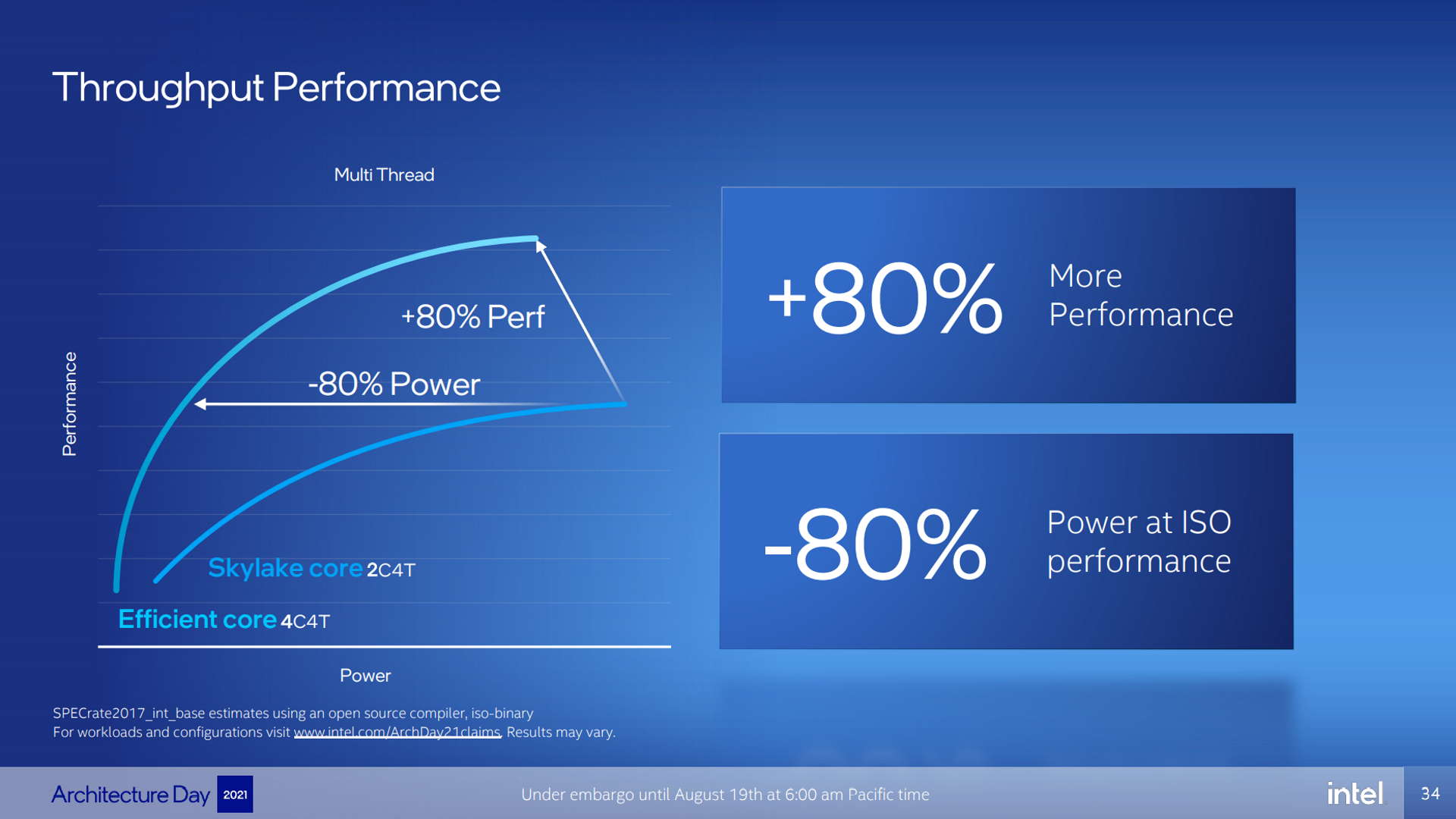
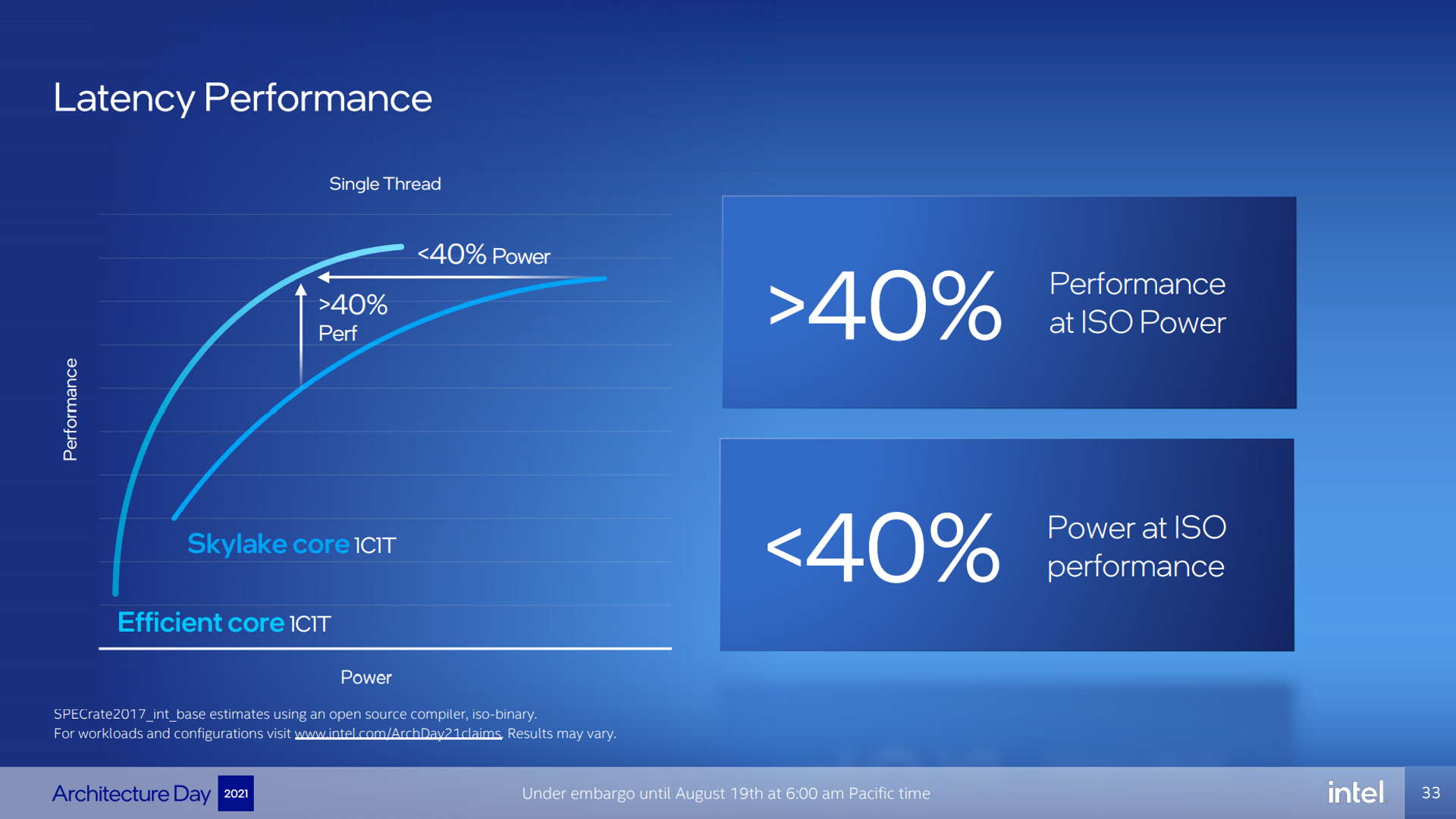
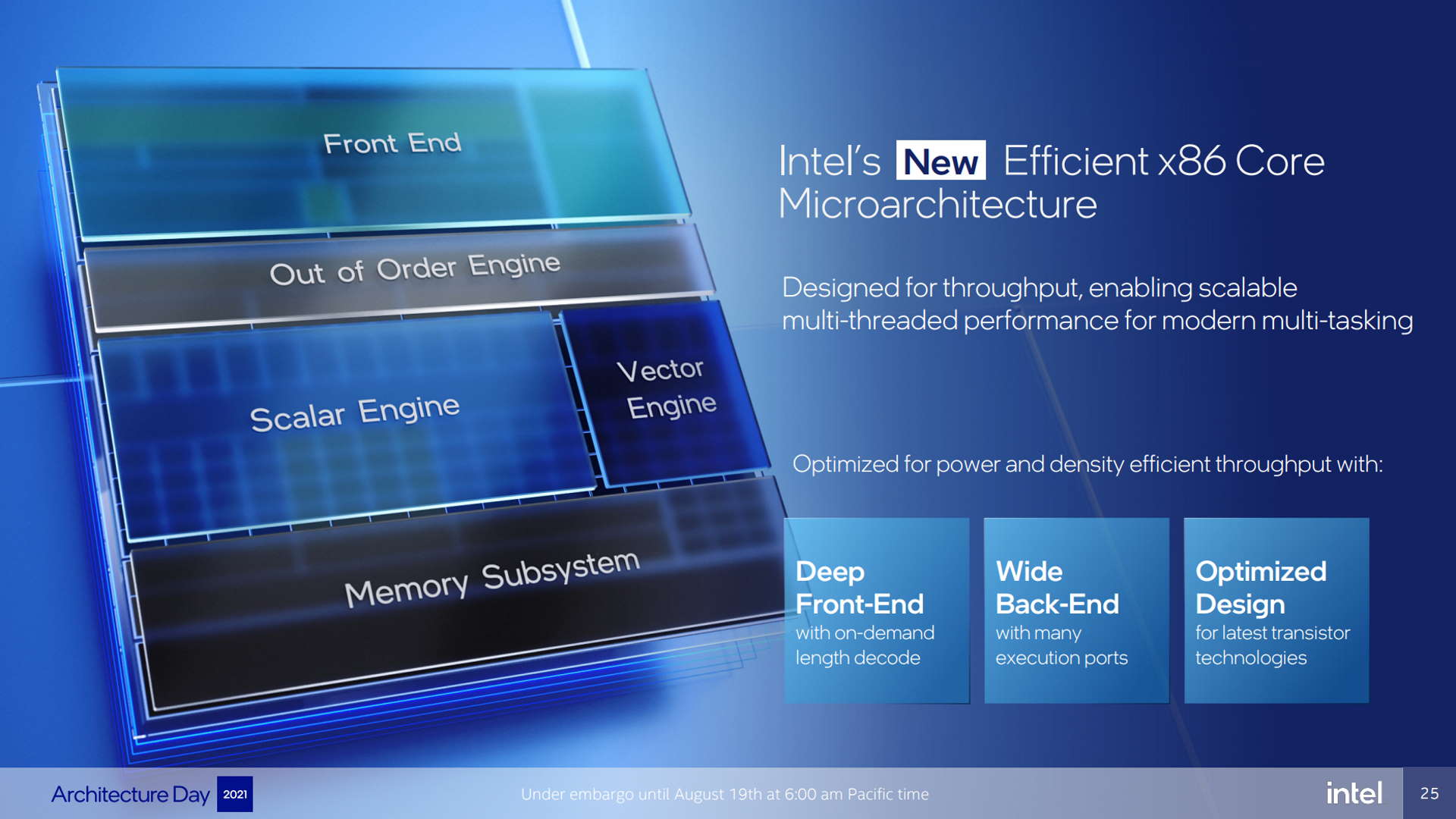

Best CPU for gaming: the top chips from Intel and AMD
Best graphics card: your perfect pixel-pusher awaits
Best SSD for gaming: get into the game ahead of the rest
"The best example that we have in the lab is gaming in parallel to whatever other workloads that you're running. Can be streaming, can be web browsing. They can be like recording the game, this is a great example of the game runs on the Performance core and the side activities run on the Efficient core," Ran Berenson, GM of Core and Client Development Group, says. "And you can run the game in same performance even if you have other tasks running in parallel."
If Intel can get the scheduling right with Alder Lake, it should mean that games get first priority to Performance cores for maximum frame rates, while low-priority software will stick to the more power-savvy cores.
Alongside new and improved power management, that could help drive higher frequencies, too, although Intel isn't quite ready to talk about final specs just yet.
It all sounds surprisingly beneficial to gaming, and that's coming from someone who was initially sceptical about whether Alder Lake's hybrid architecture would be at all useful for PC gamers, particularly on desktops.
Intel says Alder Lake is on track for release this year, so we shouldn't have long to wait to put all this to the test.

Jacob earned his first byline writing for his own tech blog. From there, he graduated to professionally breaking things as hardware writer at PCGamesN, and would go on to run the team as hardware editor. He joined PC Gamer's top staff as senior hardware editor before becoming managing editor of the hardware team, and you'll now find him reporting on the latest developments in the technology and gaming industries and testing the newest PC components.


